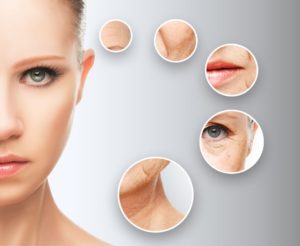If beauty is skin deep, then that depth finds its roots in nutrition. Nutrition plays a pivotal role in the health of our skin. The connection between nutrition and skin health is undeniable and intertwined, a fact that is unfolding rapidly with ongoing research in dermatology. In this sphere where beauty, health, and nutrition intersect, it is fascinating to see the proactive roles we can play to maintain and improve our skin health through dietary choices.
How Does Nutrition Influence Our Skin Health?
Simply put, diet plays a role in skin health just like it does in our overall health. Our skin cells, just like other cells, rely heavily on nutrients for renewal and repair. A diet that is nutrient-rich is like nourishing rain for the parched skin cells, keeping them vibrant and resilient to skin disease.
The connection between nutrients and skin cells
Nutrients play an important role in skin health by energizing the skin cells, combating inflammation, and promoting healing. A robust supply of vitamins, minerals, and antioxidants can rejuvenate dry skin, reduce inflammation, and may even play a role in the health of the dermis of human skin.
Role of antioxidants in maintaining healthy skin
Antioxidants, like Vitamin C and E, play a significant role in skin health. They work as protective shields against free radicals that cause skin damage, thus can prevent premature aging and maintain the health of our skin’s elastic fibers.
Fatty acids and their relevance to skin health
Omega-3 and omega-3 fatty acids are known to provide powerful antiinflammatory benefits that can heal inflammatory skin conditions like acne, eczema, and psoriasis. They also contribute to the promotion of a healthy skin appearance by ensuring the smooth functioning of the epidermis and dermis.
Can a Healthy Diet Prevent Skin Conditions?
A balanced diet not only contributes to good health but can also prevent a number of skin conditions. Dietary choices can transform your skin’s health and potentially prevent or control chronic skin diseases.
Combating acne with dietary choices
Dietary interventions can play a critical role in controlling skin conditions like acne. Nutrients from fruits and vegetables, omega-3 fatty acids, and antioxidants can help to keep your skin clear of acne by regulating sebum production and reducing inflammation.
Preventing psoriasis and eczema through a balanced diet
A balanced diet rich in antioxidants, antiinflammatory nutrients, and essential fatty acids can significantly reduce the symptoms of chronic skin conditions like psoriasis and eczema, providing a sense of control and relief to many sufferers.
Controlling rosacea and other skin inflammations with nutrition
Nutrition plays a commendable role in controlling rosacea and other skin inflammations. An antiinflammatory diet is generally recommended to prevent and calm skin flare-ups.
All About Aging: Can What We Eat Affect Wrinkles and Sagging?
While aging is a natural process, the food we consume has the potential to slow down our skin’s aging process and influence the formation of wrinkles and sagging.
Fighting aging skin with fruits and vegetables
A diet abundant in fruits and vegetables is an antidote to skin ageing, thanks to the rich presence of antioxidants and vitamins. These nutrients neutralize free radicals that contribute to skin damage and premature aging.
The role of vitamins C and E in wrinkle reduction
Vitamins C and E play an important role in decelerating the appearance of wrinkles. Not only do they help combat harmful UV rays which can expedite the aging process, but their anti-oxidative properties reduce the risk of skin damage.
Dietary factors that can accelerate skin aging
Poor nutrition can fast-track the aging process, resulting in dull skin, wrinkles, and sagging. Excessive sugar, alcohol, and processed food consumption may harm your skin’s youthful glow and elasticity, compelling the need for a balanced diet.
Incorporating Essential Nutrients into Our Diet for Better Skin Health
A comprehensive incorporation of essential nutrients into our daily diet can significantly boost skin health. This could be as simple as including a diversified range of fruits, vegetables, lean proteins, healthy fats, and complex carbohydrates into our meals.
Omega-3 and Omega-3 fatty acids: Their impact on skin health
Omega-3 fatty acids, found in abundance in fatty fish, flaxseeds, and walnuts, pack an anti-oxidative and anti-inflammatory punch. They not only help to combat dry skin and acne but could also potentially help in the treatment of skin cancers.
The benefits of selenium for skin health
Selenium, a mighty mineral, plays a role in protecting the skin against sun damage, skin cancer, and age spots. Consuming selenium-rich food improves the skin’s defense against harmful UV rays, reducing the risk of skin problems.
Increasing your UV protection with dietary choices
Your diet can surprisingly act as an adjuvant sunscreen, with nutrients such as lycopene, Vitamin C, Vitamin E, and selenium renowned for increasing your skin’s resistance against sun damage.
What Do Dermatologists Say About Nutrition and Skin Health?
Contemporary dermatology now places a renewed emphasis on the importance of a healthy diet for skin health, pushing the boundaries of traditional skincare wisdom.
The dermatologist’s perspective on the healthy skin-diet link
Dermatologist acknowledges that diet plays a role in maintaining the elasticity, pigmentation, and overall health of the skin. They stress that changes in diet can influence skin health either negatively or positively.
The role of a dermatologist in guiding nutritional choices
Dermatologists can guide dietary choices by educating patients about the connection between nutrition and skin health. They often recommend diets rich in fruits, vegetables, lean proteins, and healthy fats for healthy skin.
Dermatology-approved diet for preventing skin cancer
Research in dermatology has crucially pointed towards a diet rich in antioxidants, omega-3 fatty acids, and specific vitamins and minerals as beneficial to prevent skin cancer. Following this dermatologist-approved dietary plan could contribute significantly to the health and longevity of our skin.
*Information in this article is not medical advice and may not be factually accurate. It is intended for entertainment purposes only. Consult with a physician before attempting any tips in this blog post and to get the most up to date factual data about any procedure or treatment.














